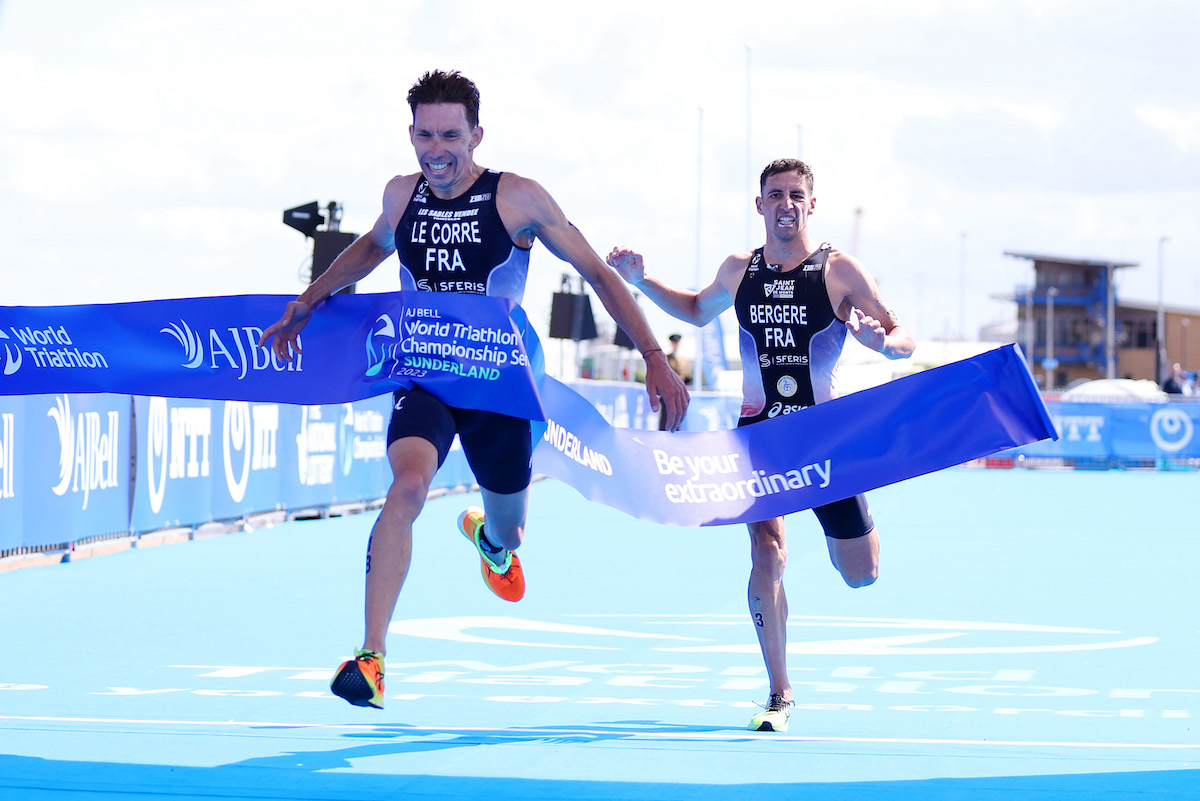British World Series exit underlines bigger issue for triathlon
The World Triathlon Series has been a highlight of the British Triathlon calendar since 2009, but won’t be returning unless the model is revolutionised

The dramatic rise of the Brownlees; prime Helen Jenkins; a Grand Final sprint finish between Gomez and Jonny; Non Stanford topping the world. From 2009, the World Triathlon Series in London, including an Olympic test event, marked heady days for our sport in the UK.
From 2016 and the Brownlees finding ways to win pre and post the Rio Olympics in front of an adoring home crowd, to the scenes that followed in Roundhay Park leading into Tokyo – and despite the backdrop of a pandemic – it continued to thrive in Leeds.
Outside of major Games, World Series racing in these two locations over the past 14 years has given British triathlon its greatest showcase and fondest memories.
But following a one-off trip to Sunderland on the last weekend of July, GB’s World Series roadshow is over.
Next year’s proposed return to Leeds has been aborted and, although the governing body has pledged to try again in the future, the omens aren’t encouraging.
Today’s current crop of stars such as Alex Yee, the evergreen Jonny Brownlee, Beth Potter and Sophie Coldwell captured the mood by choosing not to take part in the individual event in the north east.

It might have been race-smart with a view to the Paris test event, but gave a hollow tone to three and a half hours of BBC footage on a Saturday afternoon, where the casual viewer was left scratching their head at the absence of Union flag tri-suits racing for the podium.
The top line is that a GB leg of the World Series is a casualty of a challenging economic climate with soaring overheads.
The governing body, British Triathlon, are also, and probably somewhat reluctantly, the event organisers here, and its chief executive Andy Salmon says although “devastated” the £1.5million outlay and year-on-year losses can no longer be justified however big the shop window is for the sport in this country.
For context, British Triathlon brings in around £12m a year, but doesn’t have complete autonomy over its spending. Around half the total arrives in grants from UK Sport and Sport England, and although some of the UK Sport money can be channeled towards major events, it comes with conditions.
These include funding the day-to-day elite programme or – in the case of Sport England – investing in grassroots, such as the new Swim, Bike, Run initiative that will attempt to grow the sport in more deprived regions of the country.

The flipside is that the model of the World Series, with its $150k hosting fee, $200k prize money and $250k for the broadcast production, plus extras such as $36k travel grants for athletes or $16k for TV graphics, adds up to an increasingly unappealing prospect for potential hosts.
As a case in point, we’ve yet to hear the venues for the 2024 series. It is not just the British baulking at the costs.
Without a sizeable injection of public funds looking to boost a region’s tourism, the figures aren’t stacking up elsewhere, either.
This is not necessarily a case of a moneybags World Triathlon looking to milk the financial coffers of gullible hosts.
For the long term health of all in the sport, it pays for World Series events to be commercially successful, and as such, Salmon is part of the international federation’s working group looking to reengineer the current model and find a way forward.
What might that be? While World Triathlon won’t be drawn to comment, there’s the potential that private partners are introduced to run the series, freeing up the federation to focus on governing rather than being a race series organiser (a not dissimilar challenge that British Triathlon faces on a domestic level).
Hand it over to the professionals, in other words.

But who are these private organisations with the financial backing and wherewithal to entertain such a prospect?
Non-endemic interest is unlikely and we can rule out Ironman due to its participation-led model, leaving only the Professional Triathletes Organisation or Super League Triathlon as potential partners with enough clout.
Both would need to be persuaded there is enough potential in the current loss-making series to take the plunge, but don’t rule it out. It could be of benefit for all.
And what is the alternative? That the WTCS limps on with a disjointed series and short-lived hosts looking for a quick tourist hit, and – from a British fan perspective – no return to these shores any time soon.
Top image credit: George Wood/Getty Images




